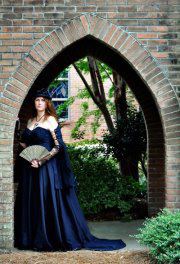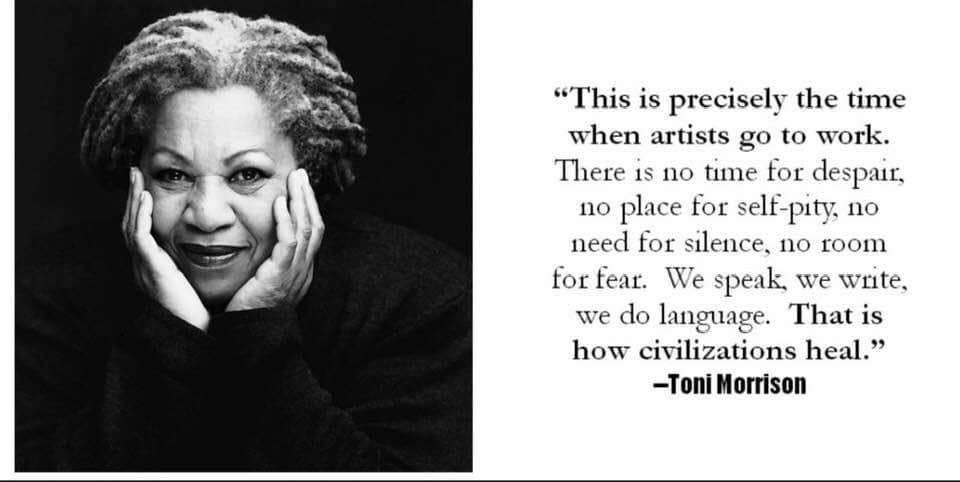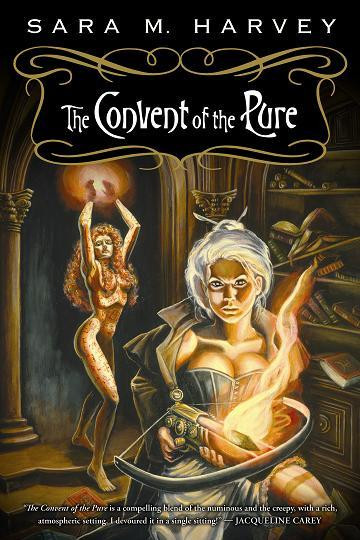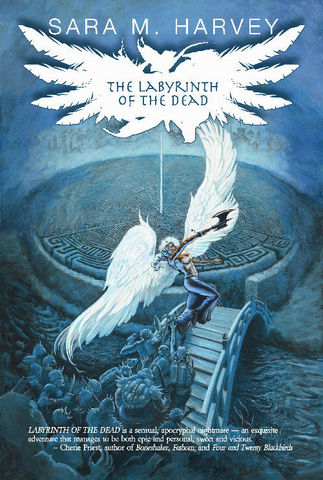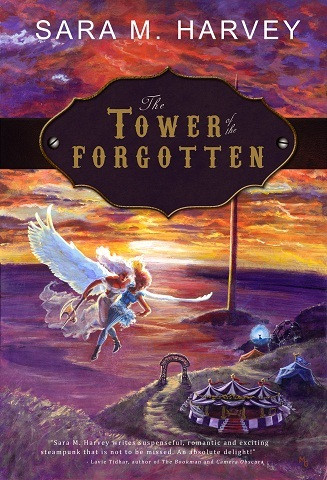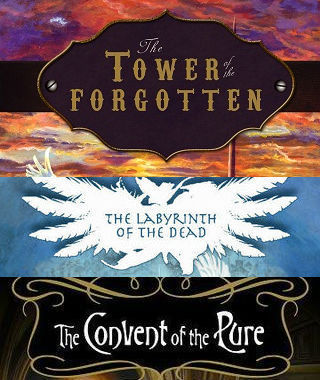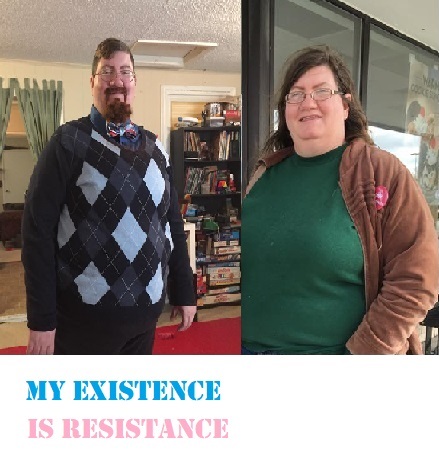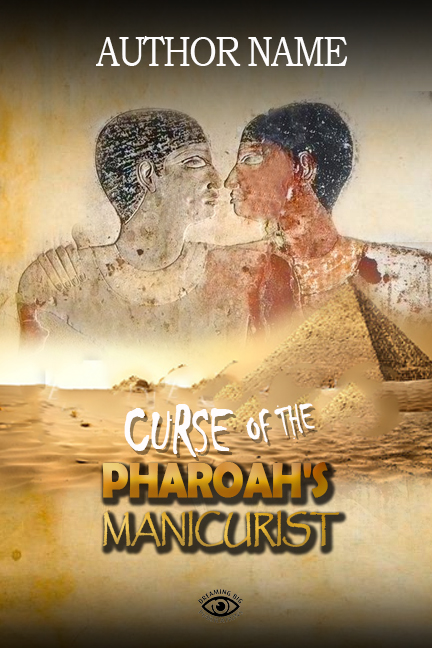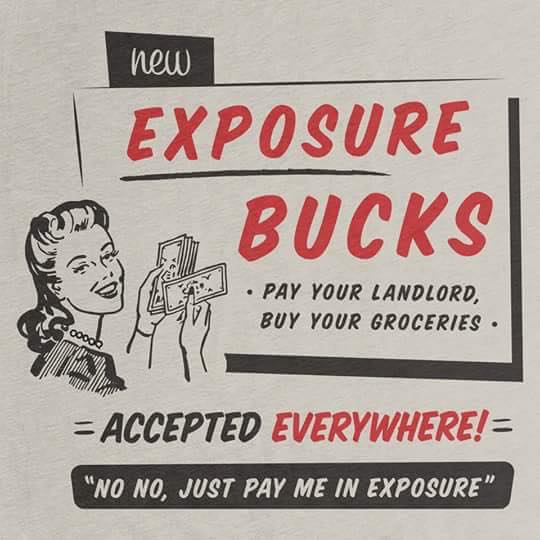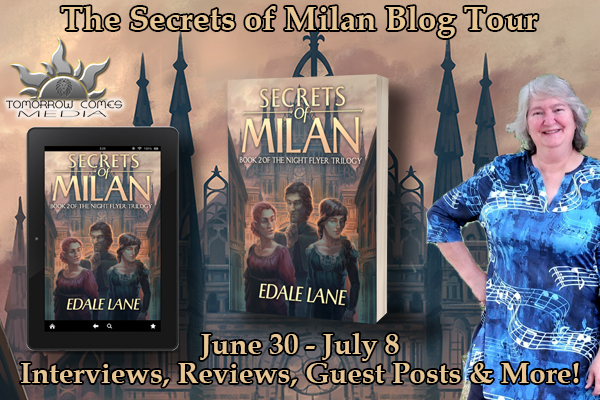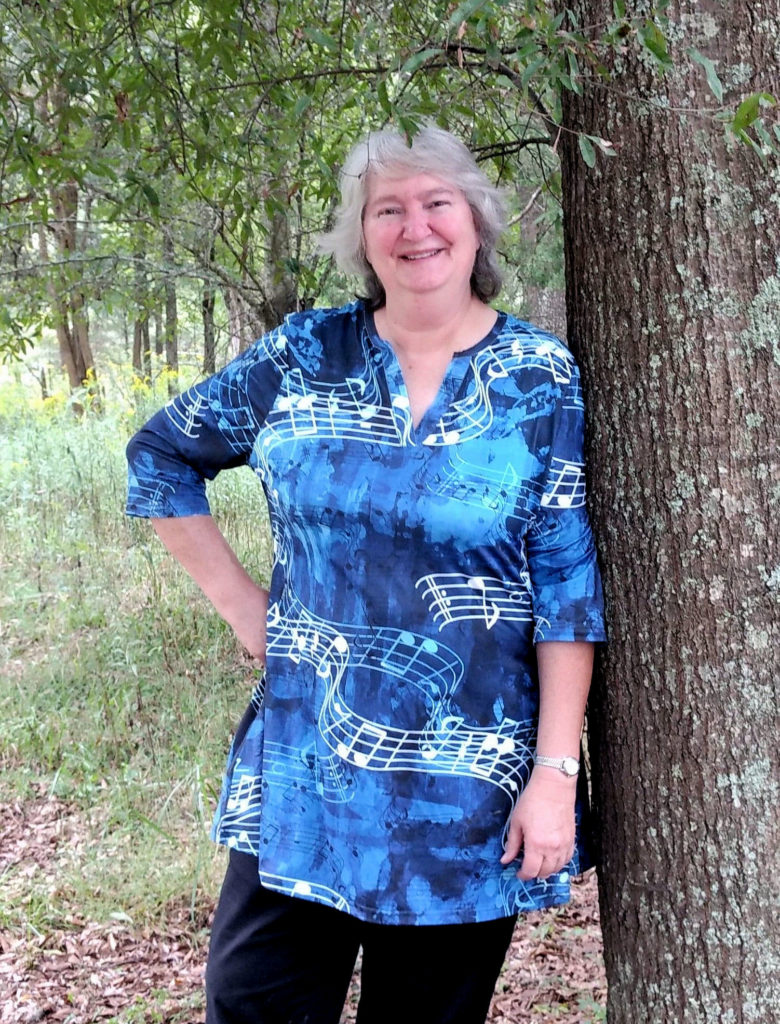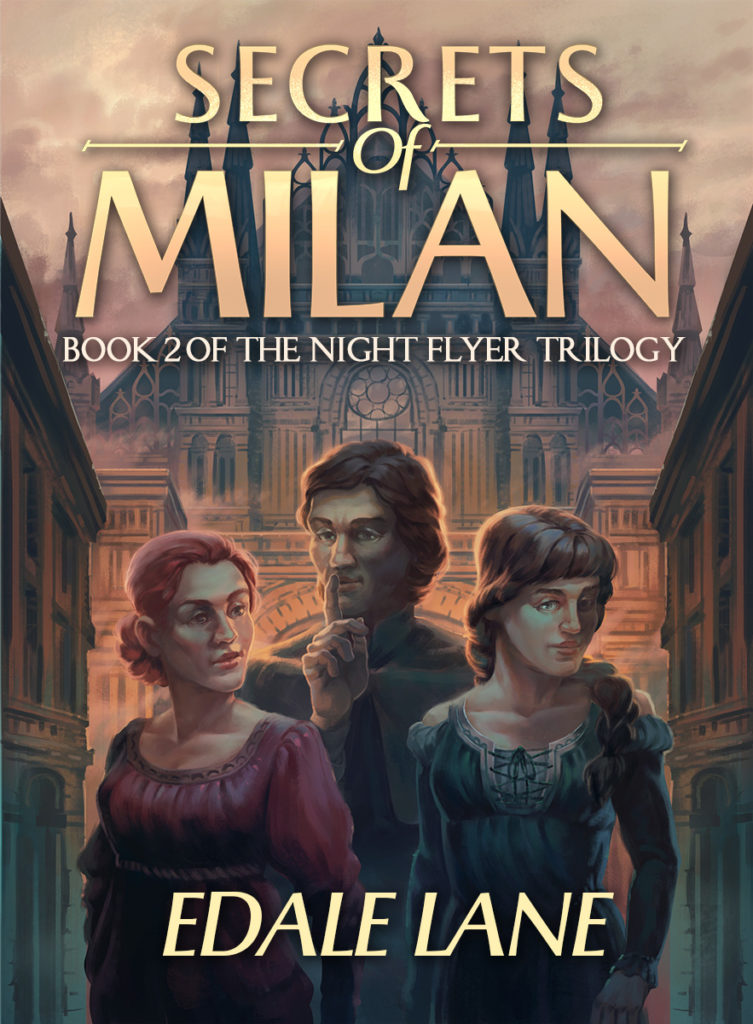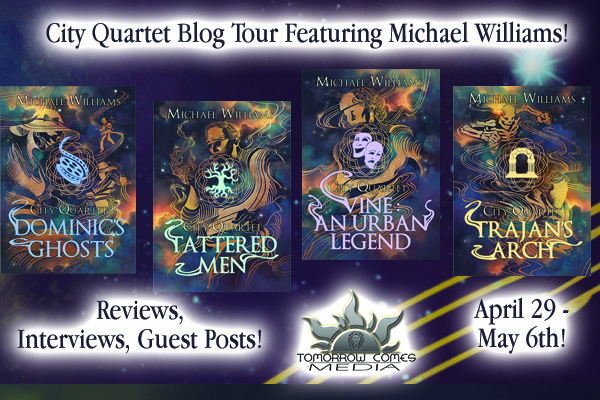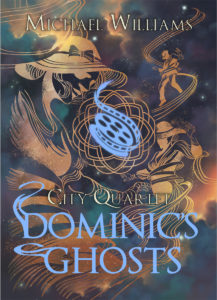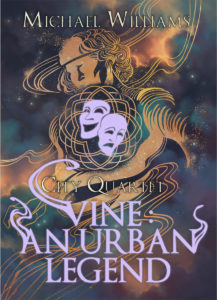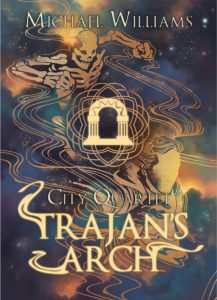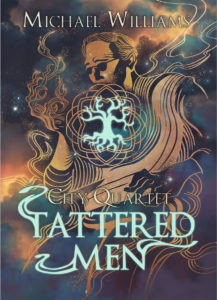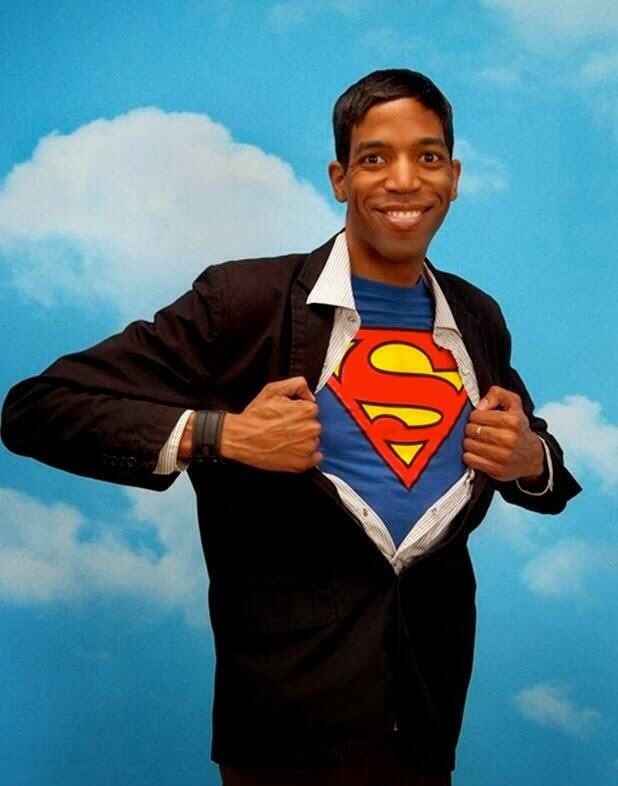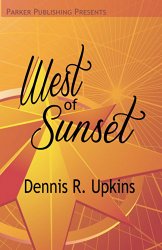Literary Underworld co-founder Elizabeth Donald has a new novella out from Crone Girls Press, the next adventure in her Blackfire horror series!
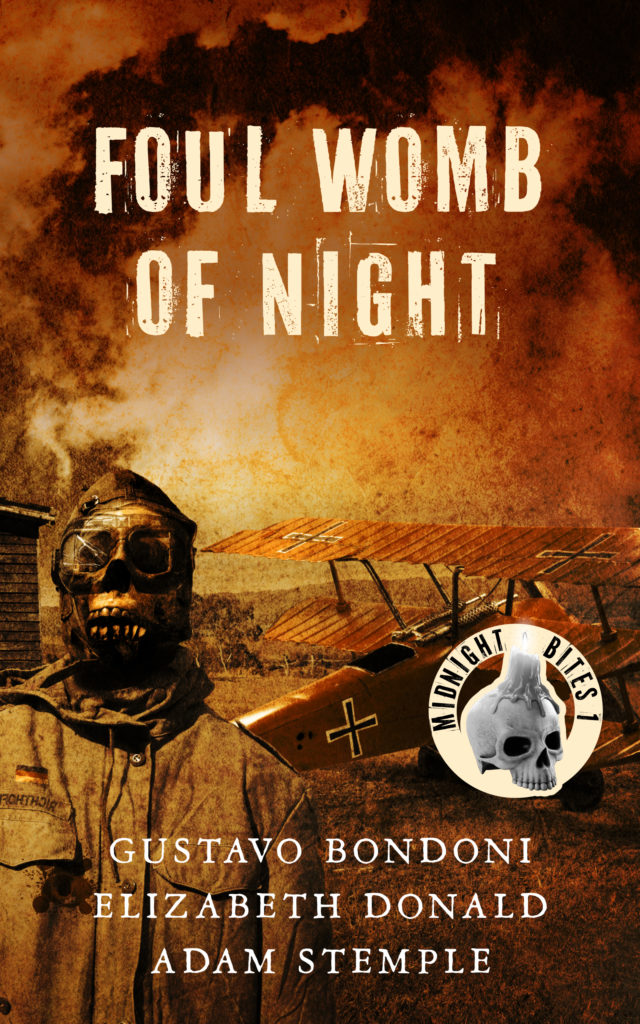
Elizabeth discussed this new release in a recent interview with Crone Girls Press managing editor Rachel Brune.
Q: Can you tell us a little about yourself and your writing?
I’ve been writing since I could pick up a crayon, but my first published fiction appeared in 2001 or thereabouts. I wrote short stories that usually ended up in the last issue of each magazine, so I was the Typhoid Mary of the small press for a while. My first novel was published in 2004, and I’ve been writing fiction ever since – usually horror, science fiction, a spot of romance and a touch of fantasy, but often where several of these coincide. By day, I was a newspaper reporter for 20-odd years and continue to commit journalism on a freelance basis; by night I write about ghouls and monsters, and I try not to mix them up with Congress.
Q: This is a prequel to your Blackfire series. Can you give readers an introduction to that series and tell us a little bit about it?
Blackfire started with a novella intended for a collection like this one: traditional monsters written in nontraditional ways. I was assigned zombies, which was a relief since I’d spent the last several years writing about vampires and I wanted the switch. Zombies are traditionally a gross-out horror: fear of disease and putrefaction coupled with the survivalist subgenre. So I went another way entirely, and strove to find a way to make zombies scary without eyeballs and entrails. That was The Cold Ones, but the anthology was canceled before publication. A year later I found a publisher willing to take it on even at that very short length, and the print run sold out in 48 hours. Since then I’ve written a full-length novel, Blackfire, and a handful of short stories published in genre magazines and traditional literary magazines, as well as in my own short story collection, Moonlight Sonata.
Yanaguana is part of that story – a prequel by its setting, but it doesn’t require knowledge of all the other stories to enjoy it. It’s a good introduction to Sara Harvey, Paul Vaughn and the rest of the Blackfire crew, and it’s my hope to keep writing tales of their adventures for a long time to come. Unfortunately, the original publisher went out of business, so those two early books are out of print for now.
Q: This story was partly inspired by a trip to San Antonio. Can you talk a little about that, and how the story came out of it?
San Antonio is a nifty city! I travel a lot for my work as a journalist and as an author, averaging about 30 nights a year in hotel rooms when there isn’t a global life-threatening pandemic. Last year I was in San Antonio on business for journalism, and I fell in love with it. The history (ghost-related and otherwise), the food, the fascinating layout of a city on two levels. And did I mention the food? Yum.
But mostly it was that fascinating layout, of the Riverwalk and the thread of the San Antonio River meandering through downtown, and the city itself bustling about a level above it. I wandered along the river and realized what a wonderful setting it would be for monsters and demons and ghosts, because that’s the way my mind operates. Ask poor Memphis how many times I’ve infested it with monsters!
Before my trip, I had arranged to be allowed a photo shoot on the grounds of the Alamo (though not inside the chapel, they don’t allow God himself the rights to shoot inside there). I visited three times for photography and research, developing a travelogue for my nonfiction work.
But as I was planning the story of Yanaguana, I knew something had to happen at the Alamo. The city itself is practically a character in the novella, and the Alamo is the center and heart of the city and its history. Yes, it’s a huge tourist draw and I have no doubt economics is a big part of its importance, but it has special meaning for the people of Texas and San Antonio in particular. I knew I wanted it to be a big part of my story, and I’m very grateful for the opportunity to do my research properly. I hope I’ve treated the city and its history with the respect they deserve.
Q: What were some of the challenges of revisiting a series after some time away, especially writing something that happens before the other books? How did you meet that challenge?
It was harder than I thought it would be! Not so much revisiting these characters, because they’re still very much alive for me. In fact, a short story featuring Parish Roberts was published earlier this year in River Bluff Review, so I never go too long without playing with the Blackfire crew. But the prequel aspect was a struggle, because I am a Star Trek-level nerd about continuity. I was continually checking the previous works to make sure the events of Yanaguana fit into the timeline of the Blackfire story and don’t contradict events prior to or after its occurrence. I remember searching for quite some time to figure out in which leg Sara was stabbed way back in the first book! I never want my creative impulse to create questions in the mind of the reader that throw them out of the story or compromise the realism of the characters’ stories – as much realism as one can have when you’re talking ghosts and monsters.
Q: Can you explain why every time I read one of your stories, there is always a scene or sentence that makes your editor cry (in a good way)?
A horror writer isn’t necessarily an emotional sadist, but it helps! If I make a reader cry, or afraid, or laugh, or any strong emotional response, I win. The enemy of good fiction is boredom. If I hear someone lost interest in my story partway through, or even fell asleep at midnight reading it, I want to know where I lost them so I can fix it next time. The most beautifully written descriptive passage isn’t worth the paper it’s printed on if the reader is skimming past it, muttering, “So when is something going to happen?” And if I hear they cared enough about my characters to cry for them, or that their snark made the readers laugh, I know I’ve created something that reaches them and will stick with them after they finish the book. And that’s really the point of the job, isn’t it?
Q: I recognize a lot of what I think of as “subtle accuracy” in your writing, especially around local law enforcement, mortuary affairs, etc. You’ve spent many years working as a reporter–does this inform your writing? For those writers without this experience, what would you recommend they do to achieve familiarity with these characters and situations?
As of this writing I’ve been in journalism for 23 years, and while I don’t tend to run out to crime scenes or courtrooms as a freelancer now, I did it for a very long time and have the scars to prove it. It goes back to that wish not to throw the reader out of the story. If you ask real cops and prosecutors what they think of forensic procedural TV shows like CSI, you will get a lot of laughter and some four-letter words. For the sake of dramaticism, they’ve got lab rats that kick down doors and interrogate suspects, and don’t get them started on the “not-a-cop who helps the cops” a la Castle or even Mr. Holmes. It’s important to me to get as much realism into my dark fantasies as possible, because it lends credence to the more fantastic elements. I have cop friends who read my interrogations and police procedures; I have military friends who review military aspects; I have gun experts to tell me the difference between a clip and a magazine because those are the tiny details that throw a reader out of the story. (Don’t get me started on my own reaction to the Evil Soul-Sucking Lying Journalist trope.)
It’s also important to have first readers check you when you’re writing about populations beyond yourself, whether we’re talking about race or ethnicity or religion or sexual orientation and gender identity. I edited a piece once for a straight male client who was writing a love story between two men, and with his permission requested a sensitivity read from a fellow writer who was gay. Because both the client and I were working from outside our life experience, it helps to have the perspective of someone whose experience aligns more closely to your characters. The goal is to accurately and realistically portray people we made up from our imaginations, and it’s easy to fall into the trap of stereotypes and clichés that are offensive, inaccurate, or simply boring and overdone.
The easy answer is to do your research and never fall into the laziness of, “Nobody will notice.” (Someone always notices. Always.) There are groups like Writing the Other that offer seminars and strive regularly to help writers seek and destroy stereotypes and microaggressions that can creep into our writing, and professional sensitivity readers can also help you along those lines.
The more complex answer is that a writer is an observer of human nature, and you should seek out life experiences and acquaintances with a wide variety of ideas and expertise and backgrounds. The writer alone in her garret might not have much in the way of distractions from her art, but eventually it will become solely self-reflective art. Stephen King wrote that the most brilliantly rendered fictional character is “but a bag of bones” next to the dullest living human being, and so we can do worse than to become students of human nature and reflect that in our characters.
Q: What’s next in your fiction travels?
I am currently in year three of five years of grad school, working on two (2) masters degrees so I can be truly over-educated. I’ve begun the coursework this semester toward an MFA in creative writing, and so my focus has been on developing short stories and evolving my craft through the program. Next summer will be free, however, so I imagine a novel will be forthcoming. But I haven’t decided which novel it will be yet! I listen to requests from my readers, and the last few conventions before the pandemic had a cacophony of requests for more Blackfire. There’s a final confrontation coming, and I know how it ends…
Q: Anything to add?
I had a fantastic time playing with the Blackfire gang again, and infesting San Antonio with critters, as they call them. This has been a fun experience, and I hope the readers enjoy Yanaguana as much as I did. I remain grateful and humbled that publishers continue to gamble on me and readers continue to plunk down hard-earned cash for my work, as it’s a privilege and an honor.
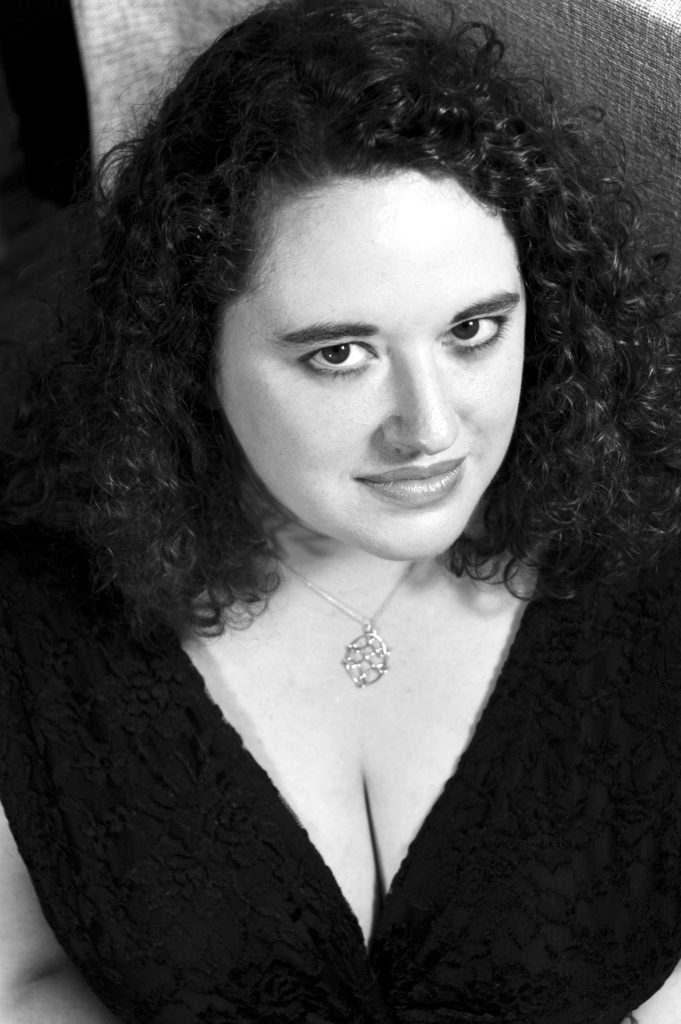
Elizabeth Donald is a dark fiction writer fond of things that go chomp in the night. She is a three-time winner of the Darrell Award for speculative fiction and the author of the Nocturne vampire mystery series and Blackfire dark fantasy series, as well as other novels and short stories in the horror, science fiction, and fantasy genres. She is the founder of the Literary Underworld author cooperative; an award-winning journalist and guest lecturer on journalism ethics; a nature and art photographer; freelance editor and writing coach. She is currently pursuing two masters degrees at Southern Illinois University Edwardsville and is a teaching assistant at the college. She serves as president of the St. Louis Society of Professional Journalists and Eville Writers, and is a member of the national SPJ Ethics Commission, AEJMC, ELLA, Freelancers Union, Editorial Freelancers Association and others. She lives with her husband and son in a haunted house in Edwardsville, Illinois. In her spare time, she has no spare time.

